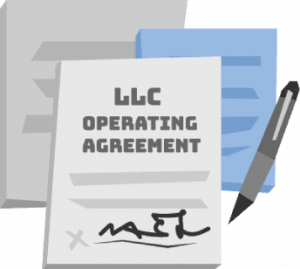How to Start an LLC in Connecticut
If you plan on starting a business in Connecticut, consider forming an LLC or limited liability company. LLCs provide liability protection, flexible management structure, and multiple tax options for their owners.
To get started, you’ll need to submit a Certificate of Organization to the Connecticut Secretary of State and pay a $120 state filing fee. Follow this guide to set up your Connecticut LLC.

1. Name Your LLC
First and foremost, decide the name of your LLC. Connecticut has some rules you’ll need to follow to make sure your name is valid (those rules are covered in CT Gen Stat § 34-243k.) Basically, you need to know the following things when choosing the name of your Connecticut LLC:
- Your name needs to be available to use in Connecticut.
- Your name must contain the phrase or abbreviations: Limited Liability Company, LLC, or L.L.C.
- Your name can’t include any words or abbreviations that suggest a different entity type, such as Incorporated, Corp, or Limited Partnership.
We provide a directory of state business name availability guides you can use to check if your LLC name is available for use in Connecticut.
Tip: Connecticut LLC names can be reserved for up to 120 days by submitting an Application of Reservation of Business Name to the Connecticut Secretary of State along with a $60 fee.

2. Register Your Domain Name
Your domain name is your business’s online web address. It’s what customers use to find your business offerings online. An online presence you own is essential for any business.
Finding and securing the perfect domain name can feel overwhelming and popular names go fast. So, it’s smart to reserve your domain name early. Registering your domain name before you form your business ensures your desired web address is available when you need it.
At Northwest, we make the process simple. When you form your LLC with us, we’ll help you secure your domain name and provide a year of domain registration free.

3. File LLC Certificate of Organization
For the third step in creating your Connecticut LLC, you’ll need to submit a Certificate of Organization to the Secretary of State online, by mail, or in person. This officially forms your LLC with the state.
Note: All of the information on this form will become part of the public record.
This is the person who fills out your Certificate of Organization and submits it to the Secretary of State.
This address is where confirmation that your documents have been processed will be delivered.
Your company name must follow the previously discussed rules for Connecticut LLC names, such as including an identifier like LLC or Limited Liability Company.
The principal address for your LLC must be a physical street address.
P.O. Boxes are allowed for a mailing address.
A registered agent accepts service of process or legal mailings on behalf of your business. In Connecticut, you can be your own registered agent or hire a registered agent like Northwest. Connecticut’s laws for registered agents are explained in CT Gen Stat § 34-243n.
Your Connecticut registered agent must:
- Have a physical address (can’t be a P.O. Box or virtual office) in Connecticut.
- Keep regular business hours at this address.
- Accept service of process (lawsuits and other legal mail) on behalf of your business and forward it to you.
Tip: Northwest Registered Agent is a professional registered agent and business formation service. We not only act as your Connecticut registered agent, but we let you list our address on your Certificate if you’d prefer to keep your private information off the public record.
You can just mark none if your business doesn’t have one.
The number used to classify the type of business you’re starting. Go to the census website and use the keyword search to find the classification that best fits your business.
The name and signature of whoever prepared your Certificate of Organization.
How Do I Submit My Certificate of Organization?
To submit your Connecticut Certificate of Organization to the Connecticut Business Services Division, you can file online, in person, or by mail.
By mail:
Business Services Division
Connecticut Secretary of the State
P.O. Box 150470
Hartford, CT 06115-0470
In person:
Business Services Division
Connecticut Secretary of the State
165 Capitol Avenue, Suite 1000
Hartford, CT 06106

4. Adopt an Operating Agreement
An operating agreement is an internal document that determines the way your LLC runs. It defines important information for your business, like what was contributed financially and by who, how to make important decisions, and what should be done if things don’t go as planned.
While Connecticut does establish rules for what an operating agreement can include, technically, you aren’t required to have one. However, drafting an operating agreement is a wise choice for legal protection for your LLC, and for otherwise keeping everything running at an even keel. Besides, if you don’t have one, your business will instead operate under Connecticut’s default LLC laws, and wouldn’t you rather make your own decisions about member voting rights and profit allocation?
Tip: We provide an attorney-drafted Connecticut operating agreement template you can use for free.

5. Get an EIN
An EIN (Employer Identification Number) identifies your business for the Internal Revenue Service (IRS). It’s also important if you have multiple members, intend to hire employees, or open a business bank account. You can apply for an EIN for free directly from the IRS online, or hire us to get an EIN for you.

6. Get a Business Bank Account
LLCs enjoy limited liability because they’re treated as a separate legal entity from their owners. So if you mix personal and business funds, a court might decide your LLC isn’t actually a separate entity. This is why it’s important for your LLC to have its own bank account.
When you go to the bank to open that account, make sure you’ve got these essentials with you:
- A copy of your Connecticut LLC Certificate of Organization
- Your LLC’s operating agreement
- The EIN (Employer Identification Number) for your LLC
If your LLC has more than one member, you may need to provide an LLC Resolution to Open a Bank Account.

7. File State Reports & Taxes
Connecticut LLCs are required to file an annual report every year. Filing your annual report ensures that the state has up-to-date contact information for your business, and that they know if your LLC has changed ownership. In Connecticut the filing fee for annual reports is $80.
Connecticut Annual Reports are due for LLCs on March 31, starting with the year after your business forms.
Tip: Worried you’ll forget? Let us file your Connecticut Annual Report for you.

8. File the Beneficial Ownership Information Report
New LLCs are asked to file a Beneficial Ownership Information (BOI) Report within 90 days of formation. BOI Reports are a new federal filing aimed at combating financial crimes like money laundering and other scams.
Due to an injunction, the Beneficial Ownership Information Report requirement is currently under review and voluntary to file. At this time, filing a BOI Report is optional, but if the requirement is reinstated, the original deadline (January 1, 2025 for most businesses) and penalties may still apply.
We’ll keep our site up to date as the court rulings proceed, and help you stay in the loop about this important business filing.
*This is informational commentary, not advice. This information is intended strictly for informational purposes and does not constitute legal advice or a substitute for legal counsel. This information is not intended to create, nor does your receipt, viewing, or use of it constitute, an attorney-client relationship. More information is available in our Terms of Service.
Ready to Start an LLC in Connecticut?








